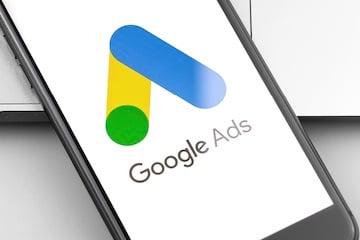Keywordless Search Ads Are Coming

I have extensive experience running pay-per-click campaigns for almost two decades and have witnessed significant changes in the industry. Strategies that were once cutting-edge have become outdated, while exciting new tactics have emerged that I enjoy exploring and testing.
In this article, I will discuss a major shift that I believe will take place in 2025.
Keywordless Search Campaigns
The idea of the “death of the keyword” is not new. It suggests that keywords may no longer be necessary for optimization, as audiences and other factors become more important.
While this prediction is not new, there are already Search campaigns that operate without keywords. Dynamic Search Ads and Performance Max campaigns match user queries to a site’s content without the need for specific keywords. Advertisers can still see the queries, but there is no bidding on keywords. This marks a shift towards keywordless campaigns and gives us a glimpse into the future of search advertising.
Google has already changed how broad match works, allowing queries unrelated to keywords to trigger ads based on other factors such as previous searches and user location. This means that traditional match types like exact and phrase match are no longer as critical, as Google now decides which queries are relevant based on a variety of factors.
A beta campaign in Performance Max called “search themes” further supports this shift towards keywordless campaigns. Advertisers can now enter themes related to their product or service instead of specific keywords, allowing Google to use machine learning to show the most relevant ads.
Same Structure
Despite the move away from keywords, the structure of Search campaigns is likely to remain the same, with campaigns organized by topics and ad groups in sub-topics. Ad copy will still reflect the ad group, and targeting will be a mix of audience signals and first-party data.
Although Performance Max targets the Search network, there are still reasons to maintain traditional Search campaigns. Advertisers cannot choose specific networks in Performance Max campaigns, and some may prefer to have more control over where their ads appear. Additionally, search has been the core of Google for many years, and removing the Search campaign type entirely would likely be too disruptive for advertisers.
Therefore, Google is expected to encourage the transition to keywordless campaigns but will not make it mandatory, allowing advertisers to choose the approach that best suits their needs.
Per Google, broad match uses the most audience signals and performs best for advertisers. Click image to enlarge.
Frequently Asked Questions
1. Will keywordless campaigns completely replace traditional keyword-based campaigns?
While keywordless campaigns are becoming more popular, traditional keyword-based campaigns are still relevant and may continue to be used by advertisers who prefer more control over their targeting.
2. How does machine learning play a role in keywordless search campaigns?
Machine learning is utilized in keywordless campaigns to match user queries with relevant content on a website, allowing Google to show the most appropriate ads to users without the need for specific keywords.
3. Are there any drawbacks to transitioning to keywordless campaigns?
Some advertisers may find it challenging to adapt to keywordless campaigns, especially those who are accustomed to optimizing based on specific keywords. It may require a shift in mindset and strategy.
4. How can advertisers ensure success with keywordless campaigns?
By focusing on creating high-quality content that aligns with their product or service offerings, advertisers can increase the effectiveness of keywordless campaigns. Regular monitoring and optimization are also key.
5. Will keywordless campaigns impact the overall performance of search advertising?
While the impact of keywordless campaigns on performance may vary, they offer a new approach to targeting and optimization that can potentially improve ad relevance and user experience.


